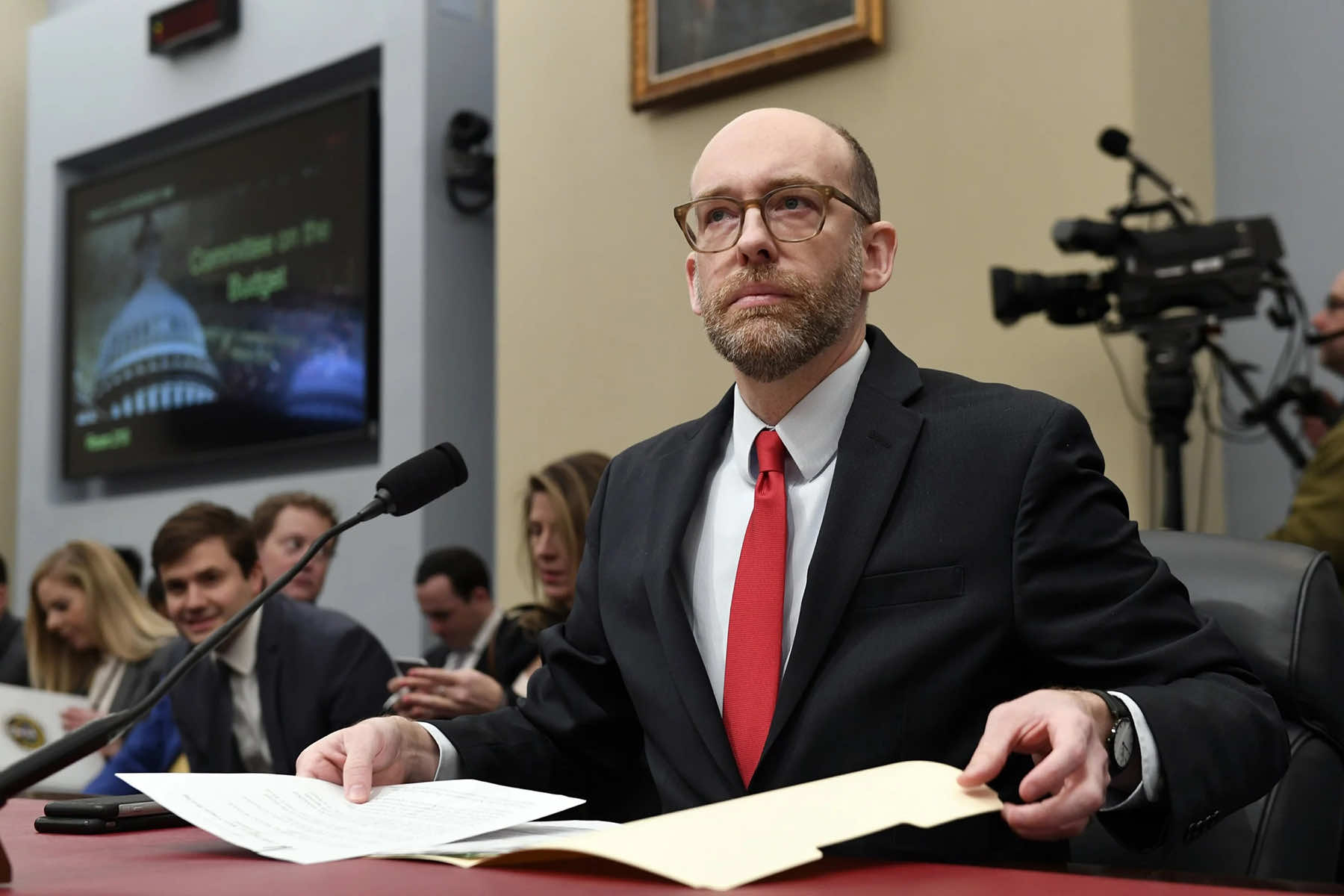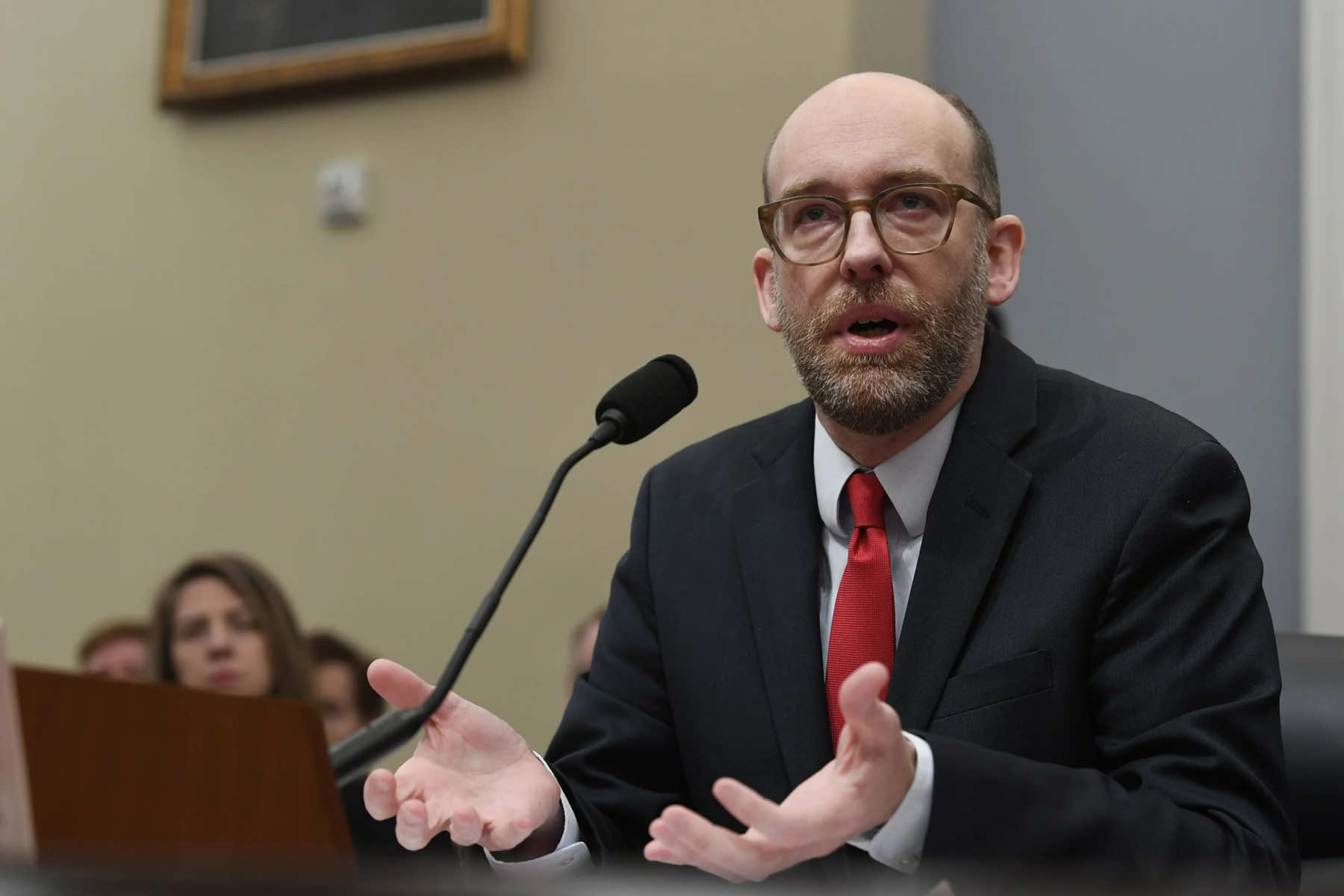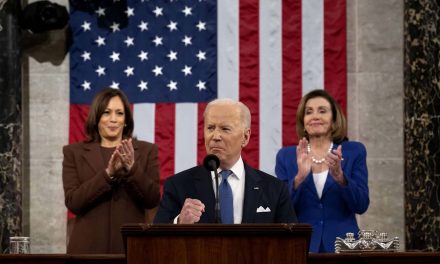
“The Washington Post” published an article by Beth Reinhard examining the philosophy and the power of Russell Vought, the hard-right Christian nationalist who is drafting plans for a second Trump term.
Vought was the director of the Office of Management and Budget from July 2020 to January 2021 during the Trump administration. In January 2021 he founded the Center for Renewing America, a pro-Trump think tank, and he was a key player in the construction of Project 2025, the plan to gut the nonpartisan federal government and replace it with a dominant president and a team of loyalists who will impose religious rule on the United States.
When Republicans took control of the House of Representatives in 2023, Vought advised the far right, calling for draconian cuts to government agencies, student loans, and housing, health care, and food assistance. He called for $2 trillion in cuts to Medicaid over ten years, more than $600 billion in cuts to the Affordable Care Act, more than $400 billion in cuts to food assistance, and so on.
The Republican National Committee (RNC), now dominated by Trump loyalists, named Vought policy director of the RNC platform committee in May. The group will draft a political platform for the Republicans this year. In 2020 the Republican Party did not write a platform, simply saying that it “enthusiastically” supported Trump and his agenda. With Vought at the head of policy, it is reasonable to think that the party’s 2024 platform will skew toward the policies Vought has advanced elsewhere.
Vought argues that the United States is in a “post constitutional moment” that “pays only lip service to the old Constitution.” He attributes that crisis to “the Left,” which he says “quietly adopted a strategy of institutional change,” by which he appears to mean the growth of the federal government to protect individual Americans.
He attributes that change to the presidency of President Woodrow Wilson beginning in 1913. Vought calls for what he calls “Radical Constitutionalism” to destroy the power of the modern administrative state and instead elevate the president to supreme authority.
There are historical problems with this assessment, not least that it attributes to “the Left” a practical and popular change in the U.S. government to adjust it to the modern industrial world, as if somehow that change was a fringe stealth campaign.
While it has been popular among the radical right to bash Democratic president Woodrow Wilson for the 1913 Revenue Act that established the modern income tax, suggesting that it was this moment that began the creation of the modern state, the recasting of government in fact took place under Republican Theodore Roosevelt a decade before Wilson took office, and it was popular without regard to partisanship.
The liberalism on which the United States was founded in the late 1700s came from the notion—radical at the time—that individuals have rights and that the government generally must not intrude on those rights. This idea was central to the thinking of the Founders who wrote the Declaration of Independence, who put into the form of a mathematical constant — “we hold these truths to be self-evident” — the idea that “all men are created equal” and that they have the right to “life, liberty, and the pursuit of happiness,” as well as the right to live under a government of their own choosing.
To keep the government from crushing those individual rights, the Constitution’s Framers wrote the Bill of Rights. Those first ten amendments to the Constitution hold back the federal government by, among other things, prohibiting Congress from making laws that would establish a national religion or prohibit the free exercise of religion, limit freedom of speech or of the press, or hamper people’s right to assemble peacefully or to petition the government for a redress of grievances.
The belief that liberalism depended on a small government dominated the eighteenth and early nineteenth centuries, but the rise of industry in the late nineteenth century shifted the relationship between individuals and the government. Was everyone really equal when industrialists were worth millions and commanded state legislatures and Congress, while workers, consumers, and children had little leverage to protect themselves?
The majority of Americans said no, and Theodore Roosevelt agreed. The danger for individuals in their era was not that the government would crush them, but that industrialists would. In order for the government truly to protect the people, Roosevelt argued, it must regulate businesses and support the ability of ordinary Americans to prosper. A true liberal government, one that protected the rights of individuals, must be big enough and strong enough to act as a referee between workers, consumers, and businessmen.
Roosevelt actually loathed Wilson, in part because Wilson ran for office in 1912 with the argument that as soon as the government broke up big corporations, the country could revert back to a small government. To Roosevelt, this made no sense. Unless the conditions of the modern economy were changed—and he believed they could not be, because the trend was always toward bigger and bigger enterprises—industry would always concentrate. Only a big government could stop those corporations from taking over the country.
Tearing apart the modern state, as those like Vought advocate, would take us back to the world Roosevelt recognized as being antithetical to the rights of individuals promised by the Declaration of Independence.
A key argument for a strong administrative state was that it could break the power of a few men to control the nation. It is no accident that those arguing for a return to a system without a strong administrative state are eager to impose their religion on the American majority, who have rejected their principles and policies. Americans support abortion rights, women’s rights, LBGTQ+ rights, minority rights: the equal rights articulated in the Declaration of Independence.
And therein lies the second historical problem with Vought’s “Radical Constitutionalism.” James Madison, the key thinker behind the Constitution, explained why a democracy cannot be based on religion. As a young man, Madison had watched officials in his home state of Virginia arrest itinerant preachers for attacking the established church in the state. He was no foe of religion, but by 1773 he had begun to question whether established religion, which was common in the colonies, was good for society.
By 1776, many of his broad-thinking neighbors had come to believe that society should “tolerate” different religious practices, but he had moved past tolerance to the belief that men had a right of conscience.
In that year, he was instrumental in putting Section 16 into the Virginia Declaration of Rights on which our own Bill of Rights would be based. It reads: “That religion, or the duty which we owe to our Creator, and the manner of discharging it, can be directed only by reason and conviction, not by force or violence; and therefore all men are equally entitled to the free exercise of religion, according to the dictates of conscience; and that it is the mutual duty of all to practice Christian forbearance, love, and charity toward each other.”
In 1785, in a “Memorial and Remonstrance against Religious Assessments,” Madison explained that what was at stake was not just religion, but also representative government itself. The establishment of one religion over others attacked a fundamental human right—an unalienable right—of conscience. If lawmakers could destroy the right of freedom of conscience, they could destroy all other unalienable rights. Those in charge of government could throw representative government out the window and make themselves tyrants.
Journalist Reinhard points out that Trump strategist Steve Bannon recently praised Vought and his colleagues as “madmen” who are going to destroy the U.S. government. “We’re going to rip and shred the federal government apart, and if you don’t like it, you can lump it,” Bannon said.
In July 2022 a jury found Bannon guilty of contempt of Congress for his defiance of a subpoena from the House Select Committee to Investigate the January 6th Attack on the U.S. Capitol, and that October, U.S. District Judge Carl Nichols, a Trump appointee, sentenced him to four months in prison. Bannon fought the conviction, but in May 2024 a federal appeals court upheld it. On June 6, Judge Nichols ordered him to report to prison by July 1.
Susan Walsh (AP) and Evan Vucci (AP)
Letters from an Аmerican is a daily email newsletter written by Heather Cox Richardson, about the history behind today’s politics
















